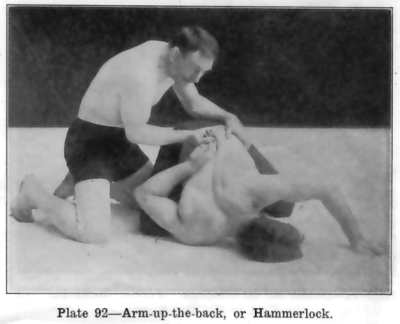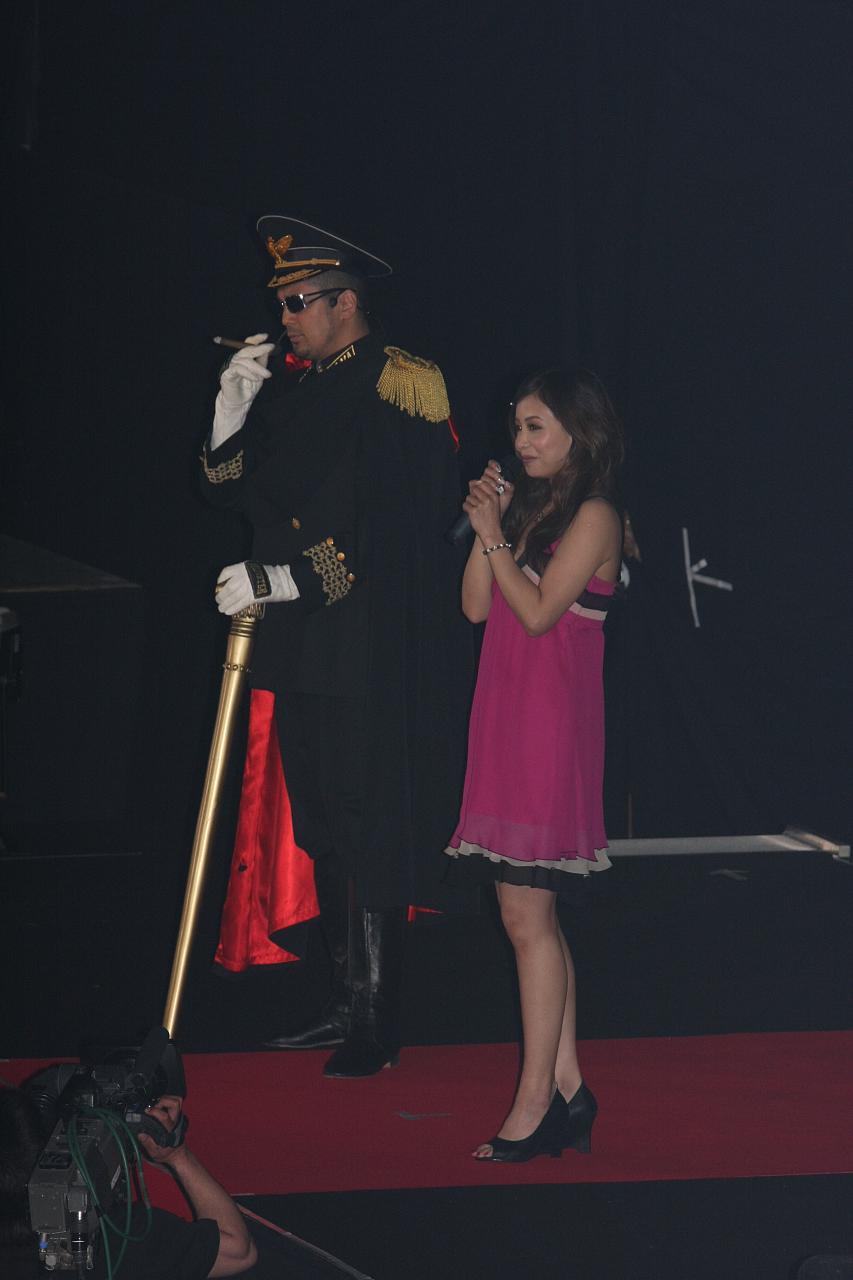|
Yuji Shimada
is a Japanese mixed martial arts and professional wrestling referee, as well as professional wrestling booker, authority figure and occasional wrestler. He has refereed more than 1,000 contests in major MMA promotions including Pride Fighting Championships, Strikeforce, One, M-1 Global, Dream, Deep, Super Fight League and Rizin Fighting Federation. He was formerly the head referee and head of the rules committee for Icon Sport. Biography He started his career in combat sports when he moved to United States to learn catch wrestling after graduating from Tokyo University. Shimada trained under Masami Soranaka, Karl Gotch's student and son-in-law, who also taught him the job of refereeing.Yuji Shimada: The Number 1 Third Man Asia MMA After returning to Japan, he started his referee ca ... [...More Info...] [...Related Items...] OR: [Wikipedia] [Google] [Baidu] |
Hustle (professional Wrestling)
was a Japanese professional wrestling promotion managed by Nobuhiko Takada. Hustle can be described as an industry experiment to market the sports entertainment style of professional wrestling in Japan. History Booked primarily by Nobuhiko Takada and Yuji Shimada, the promotion’s basic premise pits the babyface, or good guy, Hustle faction whose goal is to “defend the industry”, against Generalissimo Takada’s heel, or bad guy, Monster Faction, whose mission is to destroy the sport. Unlike the traditional puroresu, the company emphasizes melodrama and caricatures over realism and athleticism. The group once maintained a close affiliation with mixed martial arts promoters PRIDE Fighting Championships when both were owned by Dream Stage Entertainment, or DSE. Fans in the U.S. considered HUSTLE to be an answer to Takada's original wrestling style, the serious shoot style, having lost its popularity in Japan as a result of the UWFi vs. New Japan Pro-Wrestling feud and the rise ... [...More Info...] [...Related Items...] OR: [Wikipedia] [Google] [Baidu] |
Catch Wrestling
Catch wrestling (originally catch-as-catch-can) is a classical hybrid grappling style and combat sport. It was developed by J. G. Chambers in Britain . It was popularised by wrestlers of travelling funfairs who developed their own submission holds, or "hooks", into their wrestling to increase their effectiveness against their opponents. Catch wrestling derives from various different international styles of wrestling: several English styles (primarily Lancashire, as well as Cumberland and Westmorland wrestling, Devonshire, and Irish collar-and-elbow wrestling). The training of some modern submission wrestlers, professional wrestlers and mixed martial artists is founded in catch wrestling. Professional wrestling, once a legitimate combat sport, was competitive catch wrestling. The original and historic World Heavyweight Wrestling Championship was created in 1905 to identify the best catch as catch can wrestler in the world, before the belt was retired in 1957 and unified with ... [...More Info...] [...Related Items...] OR: [Wikipedia] [Google] [Baidu] |
1966 Births
Events January * January 1 – In a coup, Colonel Jean-Bédel Bokassa takes over as military ruler of the Central African Republic, ousting President David Dacko. * January 3 – 1966 Upper Voltan coup d'état: President Maurice Yaméogo is deposed by a military coup in the Republic of Upper Volta (modern-day Burkina Faso). * January 10 ** Pakistani–Indian peace negotiations end successfully with the signing of the Tashkent Declaration, a day before the sudden death of Indian prime minister Lal Bahadur Shastri. ** The House of Representatives of the US state of Georgia refuses to allow African-American representative Julian Bond to take his seat, because of his anti-war stance. ** A Commonwealth Prime Ministers' Conference convenes in Lagos, Nigeria, primarily to discuss Rhodesia. * January 12 – United States President Lyndon Johnson states that the United States should stay in South Vietnam until Communist aggression there is ended. * January 15 – 1966 Nigeria ... [...More Info...] [...Related Items...] OR: [Wikipedia] [Google] [Baidu] |
Living People
Related categories * :Year of birth missing (living people) / :Year of birth unknown * :Date of birth missing (living people) / :Date of birth unknown * :Place of birth missing (living people) / :Place of birth unknown * :Year of death missing / :Year of death unknown * :Date of death missing / :Date of death unknown * :Place of death missing / :Place of death unknown * :Missing middle or first names See also * :Dead people * :Template:L, which generates this category or death years, and birth year and sort keys. : {{DEFAULTSORT:Living people 21st-century people People by status ... [...More Info...] [...Related Items...] OR: [Wikipedia] [Google] [Baidu] |
Genichiro Tenryu
, better known as is a retired Japanese professional wrestler and professional wrestling promoter. At age 13, he entered sumo wrestling and stayed there for 13 years, after which he turned to Western-style professional wrestling. "Tenryu" was his ''shikona''. He had two stints with All Japan Pro Wrestling (AJPW), where he spent the majority of his career while also promoting Super World of Sports (SWS), Wrestle Association R (WAR) and Tenryu Project. At the time of his retirement, professional wrestling journalist and historian Dave Meltzer wrote that "one could make a strong case hat Tenryu wasbetween the fourth and sixth biggest native star" in the history of Japanese professional wrestling. Sumo wrestling career As a sumo wrestler, Tenryu was ranked as a ''sekitori'' for 27 tournaments, 16 of them in the top ''makuuchi'' division. His highest rank was ''maegashira'' 1. Upon the death of his stablemaster at Nishonoseki stable he wanted to join former stablemate Daikirin's n ... [...More Info...] [...Related Items...] OR: [Wikipedia] [Google] [Baidu] |
Akira Shoji
Akira Shoji (小路晃) (born January 31, 1974) is a retired Japanese mixed martial artist and professional wrestler. He is most known as being a regular in almost all the beginning Pride Fighting Championship Shoji was in Pride 1 to Pride 7, and was part of the first Pride open weight Grand Prix in 2000. Shoji was consistently a regular in Pride, and moved from Heavyweight to Light Heavyweight (Middleweight in Pride) due to his smaller stature. Despite his losing record, Shoji was a constant favourite of the audience, and was nicknamed "Mr. Pride" for his popularity and adherence to the mixed martial arts promotion. He was known for his mic performance, die hard spirit, stellar submission escapes, razor sharp armbar and a fighting spirit demonstrated by his willingness to take on all comers. According to fight commentator Stephen Quadros and John Hyams, director of the documentary " The Smashing Machine", Shoji cleaned his house and prepared his will before every competition in ... [...More Info...] [...Related Items...] OR: [Wikipedia] [Google] [Baidu] |
Nobuhiko Takada
Nobuhiko Takada ( ja, 高田伸彦, ring name: ) (born April 12, 1962) is a Japanese former mixed martial artist, retired professional wrestler, actor, and writer. He competed in New Japan Pro-Wrestling (NJPW), Universal Wrestling Federation (UWF) and the Union of Wrestling Forces International (UWFI) in the 1980s and 1990s, becoming one of the highest figures of the "shoot-style" movement. Takada later turned to mixed martial arts (MMA) where, despite his controversial match fixing ventures and lack of competitive success, he was credited with the existence and development of global MMA promotion Pride Fighting Championships, in which he worked as an executive after his retirement from active competition until its closure. He also founded and starred at the sports entertainment professional wrestling promotion Hustle from 2004 to 2008, and currently works as an executive for the Rizin Fighting Federation. Professional wrestling career New Japan Pro-Wrestling (1981–1984) A ... [...More Info...] [...Related Items...] OR: [Wikipedia] [Google] [Baidu] |
Yoji Anjo
(born March 28, 1967) is a retired Japanese professional wrestler and mixed martial artist. Professional wrestling career Universal Wrestling Federation and New Japan Pro-Wrestling (1985–1988) A former practitioner of judo, sumo and muay thai, Anjo tried professional wrestling after meeting Nobuhiko Takada. He passed the original Universal Wrestling Federation's entrance tests and had his debut on July 6, 1985, against Osamu Hoshina. He only wrestled a handful of matches for the company, as it collapsed later in the year and its roster moved back to New Japan Pro-Wrestling, where Anjo debuted as a low-ranking member of the UWF "invading" army. Often teaming with fellow shooter Tatsuo Nakano, he feuded with names like Akira Nogami, Osamu Matsuda and Masakatsu Funaki as part of the NJPW junior heavyweight division. He eventually left the company in 1988 following Takada, Akira Maeda and the rest of his crew to form the second incarnation of UWF. UWF Newborn (1988–1990) In ... [...More Info...] [...Related Items...] OR: [Wikipedia] [Google] [Baidu] |
Heel (professional Wrestling)
In professional wrestling, a heel (also known as a ''rudo'' in '' lucha libre'') is a wrestler who portrays a villain, "bad guy", or "rulebreaker", and acts as an antagonist to the faces, who are the heroic protagonist or "good guy" characters. Not everything a heel wrestler does must be villainous: heels need only to be booed or jeered by the audience to be effective characters, although most truly successful heels embrace other aspects of their devious personalities, such as cheating to win or using foreign objects. "The role of a heel is to get 'heat,' which means spurring the crowd to obstreperous hatred, and generally involves cheating and pretty much any other manner of socially unacceptable behavior that will get the job done." To gain heat (with boos and jeers from the audience), heels are often portrayed as behaving in an immoral manner by breaking rules or otherwise taking advantage of their opponents outside the bounds of the standards of the match. Others do not (or ... [...More Info...] [...Related Items...] OR: [Wikipedia] [Google] [Baidu] |
All Japan Pro Wrestling
(AJPW/AJP) or simply All Japan is a Japanese professional wrestling promotion established on October 21, 1972 when Giant Baba split away from the Japanese Wrestling Association and created his own promotion. Many wrestlers had left with Baba, with many more joining the following year when JWA folded. From the mid-1970s, All Japan was firmly established as the largest promotion in Japan. As the 1990s began, aging stars gave way to a younger generation including Mitsuharu Misawa, "Dr. Death" Steve Williams, Kenta Kobashi, Gary Albright, Toshiaki Kawada, Mike Barton (Bart Gunn), Akira Taue and Jun Akiyama, leading to perhaps AJPW's most profitable period in the 1990s. In 1999, Giant Baba died and the promotion was run by Motoko Baba. Misawa was named President but left in 2000 after disagreements with Motoko. Misawa created Pro Wrestling NOAH and every single native wrestler besides Masanobu Fuchi and Toshiaki Kawada left All Japan. This led to a loss of All Japan's TV deal and ... [...More Info...] [...Related Items...] OR: [Wikipedia] [Google] [Baidu] |
Battlarts
, more commonly referred to as simply Battlarts was a professional wrestling promotion based in Koshigaya, Saitama, Japan. The promotion was formed in 1996 by Japanese wrestler Yuki Ishikawa and featured all of the wrestlers from the Fujiwara Gumi promotion, who had abandoned the promotion in favor of Battlarts. They ran shows in the Tokyo area regularly from 1998 to 2002. Even though Battlarts' style was based on shoot wrestling, the promotion often cooperated with other federations and styles, including RINGS, Kingdom, Michinoku Pro and Big Japan Pro Wrestling. The biggest co-promotion occurred on October 17, 1999 when Battlarts and The Great Sasuke's Michinoku Pro Wrestling presented "Michinoku Pro vs. Battlarts", which was headlined by a tag match pitting the owners of both promotions (Great Sasuke and Ishikawa) against Jinsei Shinzaki and Alexander Otsuka. The promotion ceased running regular shows and events in 2001 due to "management aggravation". Battlarts eventually beg ... [...More Info...] [...Related Items...] OR: [Wikipedia] [Google] [Baidu] |




